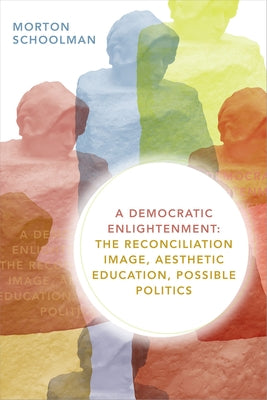Add to Wishlist
- Description
Description
In A Democratic Enlightenment Morton Schoolman proposes aesthetic education through film as a way to redress the political violence inflicted on difference that society constructs as its racialized, gendered, Semitic, and sexualized other. Drawing on Voltaire, Diderot, and Schiller, Schoolman reconstructs the genealogical history of what he calls the reconciliation image-a visual model of a democratic ideal of reconciliation he then theorizes through Whitman's prose and poetry and Adorno's aesthetic theory. Analyzing The Help (2011) and Gentleman's Agreement (1947), Schoolman shows how film produces a more advanced image of reconciliation than those originally created by modernist artworks. Each film depicts violence toward racial and ethnic difference while also displaying a reconciliation image that aesthetically educates the public about how the violence of constructing difference as otherness can be overcome. Mounting a democratic enlightenment, the reconciliation image in film illuminates a possible politics for challenging the rise of nationalism's violence toward differences in all their diversity.
Author: Morton Schoolman
Publisher: Duke University Press
Published: 05/08/2020
Pages: 336
Binding Type: Paperback
Weight: 1.00lbs
Size: 9.00h x 6.00w x 0.90d
ISBN13: 9781478008033
ISBN10: 1478008032
BISAC Categories:
- Political Science | History & Theory | General
- Social Science | Media Studies
- Literary Criticism | Poetry
Author: Morton Schoolman
Publisher: Duke University Press
Published: 05/08/2020
Pages: 336
Binding Type: Paperback
Weight: 1.00lbs
Size: 9.00h x 6.00w x 0.90d
ISBN13: 9781478008033
ISBN10: 1478008032
BISAC Categories:
- Political Science | History & Theory | General
- Social Science | Media Studies
- Literary Criticism | Poetry
About the Author
Morton Schoolman is Professor of Political Science at the State University of New York at Albany and author of Reason and Horror: Critical Theory, Democracy, and Aesthetic Individuality and The Imaginary Witness: The Critical Theory of Herbert Marcuse.











